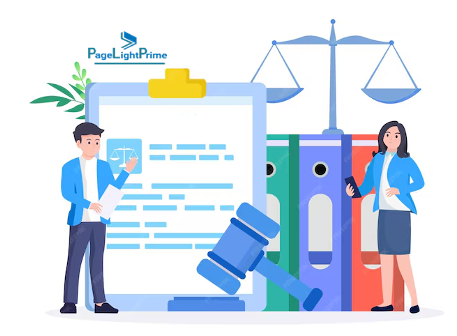Mastering the Legal General Ledger: A Law Firm’s Financial Lifeline
The general ledger for law firms is an essential tool for managing finances, serving as the master record of all financial transactions. It categorizes transactions into accounts such as assets, liabilities, equity, income, and expenses, which are crucial for law firm accounting and law firm financial management. Mastering its use is critical for maintaining financial health and compliance within a law firm, while also helping to prevent fraud and ensure financial compliance for law firms.
Written by Knowledge Team, posted on Aug 12, 2024

What is a General Ledger and Why is it Crucial for Law Firms?
A general ledger for law firms acts as the backbone of law firm accounting systems, recording every financial transaction. This includes money coming in (credits) and going out (debits), sorted into accounts for later financial analysis. The general ledger is not just an accounting tool—it’s a critical component of law firm financial management and legal bookkeeping.
How General Ledger Accounting Can Help Prevent Fraud in Law Firms
One of the significant benefits of maintaining a well-organized general ledger for law firms is its role in fraud prevention. By keeping a comprehensive and accurate record of all financial transactions, discrepancies can be quickly identified, and unusual activities can be flagged for further investigation. Regular reconciliations and strict oversight of the general ledger create transparency, making it much more difficult for fraudulent activities to go unnoticed within a law firm.

Core Components of a Law Ledger
A well-structured general ledger for law firms comprises several key components:
- Accounts: Categories where transactions are recorded, such as assets, liabilities, income, and expenses.
- Entries: Individual records of transactions that impact the accounts.
- Balances: Summaries of the entries, showing the net impact on each account.
What is the Difference Between Journals and General Ledger in Law Firms
In law firm accounting, both journals and general ledgers play crucial roles, but they serve different purposes. Journals are used to record transactions as they occur, in chronological order. Each entry in a journal is then posted to the general ledger, where it is organized by account type. While journals capture the details of each transaction, the general ledger provides a broader overview, summarizing the data to offer insights into the firm’s overall financial position. This distinction is key to understanding the general ledger’s role in legal bookkeeping.

Setting Up Your Law Firm’s General Ledger
How to set up a general ledger for a law firm can seem daunting, but with a systematic approach, it becomes manageable. This section will guide you through the essential steps to establish a robust general ledger for your law firm.
Step-by-Step Guide
Define Your Chart of Accounts
Create a comprehensive law firm chart of accounts tailored to your legal practice’s specific needs. This involves categorizing accounts for assets, liabilities, equity, revenue, and expenses. Consider using a standardized chart of accounts for law firms as a starting point.
Choose Accounting Software
Select legal accounting software that aligns with your firm’s size and budget. Many software options offer features specifically designed for law firms, including trust accounting and time billing.

Data Migration
If you’re transitioning from a manual system or another software, carefully migrate your financial data to the new general ledger. Ensure accuracy and completeness during this process.
Establish Internal Controls
Implement robust internal controls to safeguard your financial data and prevent errors. This includes assigning clear responsibilities, segregating duties, and regularly reviewing and reconciling accounts.
Train Your Staff
Provide comprehensive training to your staff on using the general ledger system and understanding its importance. This ensures accurate data entry and efficient financial management.

Additional Considerations for Setting Up Your Law Firm’s General Ledger
Compliance with Trust Accounting Regulations: Adhere to specific regulations governing client trust accounts to avoid legal and ethical issues.
Integration with Other Systems
Ensure seamless integration of the general ledger with your case management, timekeeping, and billing software.
Regular Review and Updates
Periodically review your chart of accounts and general ledger setup to ensure accuracy and alignment with your firm’s evolving needs.
By following these steps and considering the additional factors, you can establish a well-structured general ledger that supports your law firm’s financial health.

Essential Accounts for Legal Practice
Certain accounts are indispensable in any general ledger for law firms:
Trust Accounts and Client Funds
A unique aspect of law firm accounting is client trust accounting, which involves managing funds received on behalf of clients. Trust accounts must be kept separate from the firm’s operating funds to avoid accounting errors and ensure financial compliance for law firms.
Income and Expense Accounts
Accurately tracking income and expenses is vital for maintaining a law firm’s profitability. Income accounts may include legal fees and consultation charges, while expense accounts could cover office supplies, rent, and salaries.

Day-to-Day Management of Your General Ledger
The day-to-day management of a general ledger for law firms requires diligence and accuracy to ensure that the firm’s financial records remain up-to-date and error-free.
Accurate and Timely Data Entry
Consistent and accurate data entry is the foundation of effective law firm financial management. Every transaction, no matter how small, should be recorded promptly to maintain the integrity of the financial data.
Reconciling Bank Statements
Regularly reconciling bank statements with your general ledger ensures that your recorded transactions match your actual cash flow. Regular reconciliation and frequent reviews are crucial for identifying discrepancies and maintaining accurate legal bookkeeping.
Dealing with Errors and Corrections
Even the most meticulous legal bookkeeping can encounter errors. Identifying and correcting these errors swiftly is essential to maintaining the accuracy of your general ledger for law firms. This practice is a key part of law firm financial management and is critical to remaining compliant with regulatory authorities.

The Role of General Ledger in Law Firm Financial Reporting
A general ledger for law firms is integral to producing accurate and comprehensive financial reports, which are essential for managing a law firm’s finances.
Generating Financial Statements
The general ledger serves as the source of data for generating key financial statements, including the income statement, balance sheet, and cash flow statement. These documents offer a comprehensive view of the firm’s financial health, which is essential for budgeting, forecasting, and compliance with regulatory requirements. The insights gained from these reports are vital for financial analysis of the law firm and for strategic decision-making.
Law Firm Tax Preparation and Compliance
Accurate records in the general ledger simplify law firm tax preparation and ensure compliance with legal requirements. A well-maintained ledger is crucial for defending against audits and ensuring that the firm meets its tax obligations. Additionally, the general ledger’s role in maintaining detailed financial records is fundamental in demonstrating financial compliance for law firms, helping to avoid legal complications and penalties.

Cash Flow Management
The general ledger plays a significant role in cash flow management by providing a clear picture of income and expenses. This allows law firms to make informed decisions about expenditures, investments, and other financial activities.
How General Ledger Integrates with Other Financial Software Used by Law Firms
Modern law firms often use various financial software tools to manage their accounting needs. The general ledger integrates seamlessly with these systems, ensuring that all financial data is synchronized across platforms. Whether it’s billing software, payroll systems, or tax preparation tools, the integration of the general ledger with other financial software enhances efficiency, reduces errors, and provides real-time updates on the firm’s financial status.

How to Generate Financial Reports for a Law Firm
While accounting software often includes built-in reporting features, law firms may require customized reports to meet specific needs. Consider these steps:
- Define Reporting Requirements: Identify the key information you want to track and analyze.
- Design Report Templates: Create report templates that align with your firm’s specific needs.
- Utilize Reporting Tools: Leverage accounting software or specialized reporting tools to generate reports efficiently.
- Analyze and Interpret Data: Review reports regularly, identify trends, and take appropriate actions.
- Distribution: Share relevant reports with key stakeholders within the firm.

Tips for Optimizing Your Law Firm’s General Ledger
Optimizing your general ledger for law firms involves leveraging technology and best practices to enhance efficiency and security.
Implementing Accounting Software
Modern legal accounting software can automate many aspects of law firm accounting, reducing manual errors and saving time. Leveraging technology provides real-time updates on financial transactions, crucial for maintaining an efficient and accurate accounting system.
Importance of Regular Reviews
Regularly reviewing your general ledger for law firms ensures that all entries are accurate and that your financial statements reflect the true financial position of the firm. This practice is essential for both short-term management and long-term strategic planning, contributing significantly to the financial analysis of the law firm.
Best Practices for Data Security
Data security is paramount in law firm financial management. Implementing strong security measures, such as encryption and regular backups, protects sensitive financial data and ensures compliance with privacy regulations.

Conclusion
“
Mastering the general ledger for law firms is not just about keeping accurate records—it’s about empowering your firm with the tools to make informed financial decisions, prevent fraud, ensure financial compliance for law firms, and achieve long-term success. By adhering to best practices like regular reconciliation, using technology, and customizing your chart of accounts, law firms can effectively manage their finances, comply with legal and regulatory requirements, and maintain a clear picture of their financial health. Integrating the general ledger with other financial software further enhances efficiency and accuracy, making it a vital part of any law firm’s financial strategy.
“
